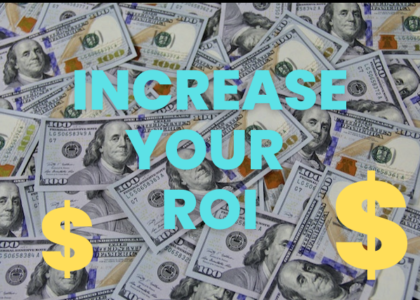Introduction:
In today’s highly competitive digital landscape, businesses are constantly looking for effective marketing strategies to gain an edge over their competitors. One such strategy that has gained significant popularity in recent years is performance marketing. Unlike traditional marketing approaches, this type of marketing focuses on generating measurable results and delivering a higher return on investment (ROI). In this blog, we will delve into the world of performance marketing, explaining its key concepts and benefits in simple terms.

What is Performance Marketing?
Performance marketing is a marketing strategy that emphasizes driving specific actions or desired outcomes, such as clicks, leads, sales, or conversions. Unlike traditional advertising where businesses pay upfront for exposure, it allows advertisers to pay only when the desired action is completed. It’s a results-oriented approach that enables businesses to track and measure the success of their marketing efforts accurately.

Key Components of Performance Marketing:
1. Affiliate Marketing for Performance:
Affiliate marketing is a crucial aspect of performance marketing. It involves partnering with affiliates, who promote your products or services on their platforms. Affiliates earn a commission for every successful sale or lead they generate. This form of marketing helps businesses expand their reach, tap into new audiences, and benefit from the expertise of affiliate marketers.
2. Pay-Per-Click (PPC) Advertising:
PPC advertising is another essential component of performance marketing. It allows businesses to place ads on search engines or social media platforms and pay only when someone clicks on their ad. This model ensures that businesses only spend money when potential customers show genuine interest in their offerings.
3. Search Engine Marketing (SEM):
Search Engine Marketing involves using paid advertising to increase a website’s visibility in search engine results. By bidding on specific keywords relevant to their business, advertisers can display their ads to users searching for related products or services. SEM offers a targeted approach, allowing businesses to reach potential customers actively looking for what they offer.

Benefits of Performance Marketing:
1.Performance Marketing is Cost-Effective:
This type ofmarketing ensures that businesses only pay when specific actions are achieved, such as a sale or a lead. This pay-for-performance model eliminates wasteful spending on ineffective marketing efforts, making it a cost-effective strategy.
2. Measurable Results with Performance Marketing:
Unlike traditional marketing, it provides businesses with detailed analytics and tracking tools to measure the success of their campaigns accurately. This data-driven approach enables businesses to identify what works and what doesn’t, making it easier to optimize their marketing efforts for better results.
3. Higher ROI:
With this type of marketing, businesses can allocate their marketing budget more efficiently. By focusing on campaigns that generate the best results, they can achieve a higher return on investment. The ability to track and measure each campaign’s output allows businesses to make data-backed decisions for improved outcomes.
4. Targeted Audience Reach Performance Marketing:
Performance marketing enables businesses to target specific demographics, locations, or interests, ensuring their ads are displayed to the most relevant audience. This targeted approach increases the chances of reaching potential customers who are more likely to convert, leading to higher conversion rates and improved business growth.

Conclusion:
Performance marketing is a powerful marketing strategy that offers businesses a results-oriented and cost-effective approach to reach their target audience. By focusing on measurable outcomes and optimizing campaigns based on data-driven insights, businesses can enhance their marketing efforts and drive tangible results. Whether through affiliate marketing, pay-per-click advertising, or search engine marketing, it empowers businesses to make smarter decisions and achieve a higher return on their marketing investment. So, if you’re looking to boost your business’s performance, consider incorporating it into your overall marketing strategy.





